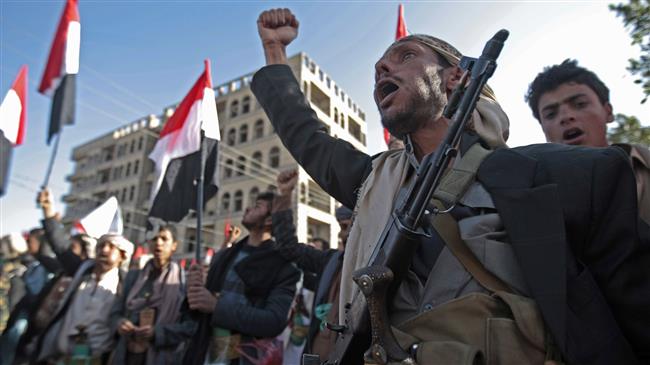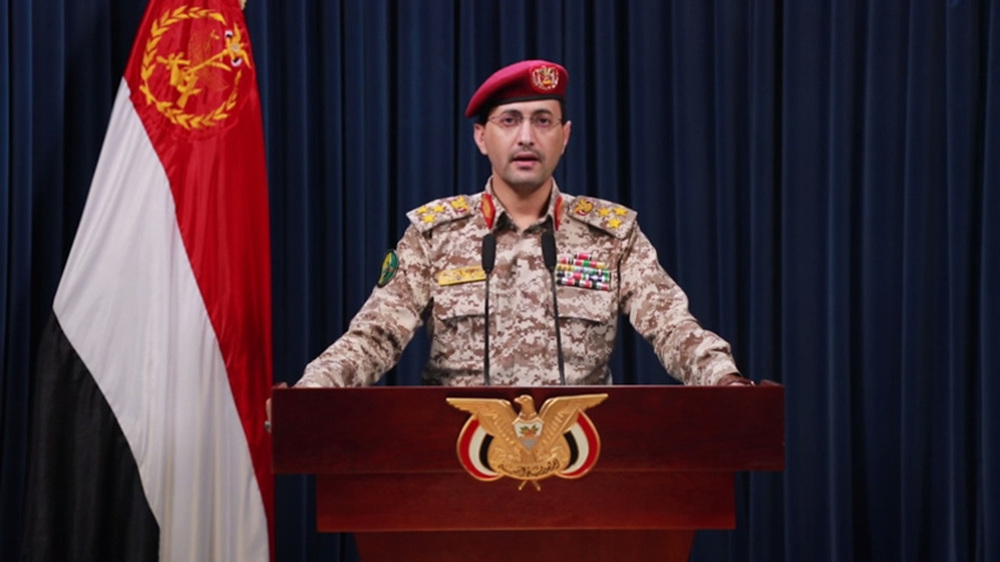Massacres won’t weaken Yemeni nation: Houthi leader
The leader of Yemen's Ansarullah movement has condemned the recent Saudi-led airstrikes on residential areas in the Yemeni capital Sana’a, saying the attacks won’t weaken the nation's determination.
“The enemy’s persistent crimes will never weaken the will of the Yemeni nation; they are in fact steadfast in the resistance against the enemy’s aggression,” said Abdul-Malik Badreddin al-Houthi on Saturday.
At least seven civilians, including children, were killed in the Saudi air raids on Thursday. Four of those died were from one family. Dozens more were also wounded in the attacks.
The United Nations Office for the Coordination of Humanitarian Affairs later said that five children had died as a result of the airstrike.
Houthi said that killings served as yet another instance of Saudi crimes against the country, revealing the “true essence” of the enemy.
“The coalition proved its animosity towards the Muslim people of Yemen since the first days [of its campaign] and showed that the victims of the coalition’s crimes are children, women and civilians which are bombed while asleep,” he said.
The Ansarullah leader further noted that “the crimes of the coalition have developed into a well-known issue in the world.”
“Today, the transgressing coalition – with Saudi Arabia and the United Arab Emirates (UAE) at its forefront, along with all its backers – hosts the worst record in genocide in the world,” he said.
Saudi war crimes
Iran's Foreign Ministry spokesman Seyyed Abbas Mousavi issued a statement condemning the attacks on Friday.
"We urge international bodies and human rights organizations to act according to their responsibilities and stop such crimes from happening again by any means possible," said Mousavi.
United Nation's Humanitarian Coordinator in Yemen, Lise Grande, also condemned the attack.
“Everything must be done to protect civilians. This is not optional. This is a legal and above all moral obligation on all parties,” she said.
The Saudi attack also prompted the condemnation of various Yemeni officials.
Speaking to Russia's Arabic RT channel, Ansarullah Supreme Political Council member Mohammed al-Bukhaiti said that attacking residential areas would attract more volunteers to fight “in the fronts”, rather than be killed under the coalition’s bombings.
Ali al-Qahoum, a member of Ansarullah's Political Council, described the attacks as a sign of “the enemy’s weakness and defeat”.
“This massacre, demonstrates the amount of savagery of the Saudi kingdom," he added.
Saudi Arabia and a number of its regional allies, including the United Arab Emirates, launched the war on Yemen in March 2015, with the goal of bringing the government of ex-president Abd Rabbuh Mansur Hadi back to power.
According to a December 2018 report by the Armed Conflict Location and Event Data Project (ACLED), a nonprofit conflict-research organization, the Saudi-led war has claimed the lives of over 60,000 Yemenis.
The US-backed war effort has also led to a major surge of Western arms exports to Saudi Arabia and the UAE, which depend greatly on foreign arms and military support in the war.
France, the United States, Britain and other Western countries have faced criticism over arms sales to the Saudi regime and its partners over the war.
Last week, popular protests prevented a Saudi cargo ship that had been expected to pick up a hugely controversial shipment of arms from receiving its arms cargo from France.
The Human Rights Watch later described the event as a “small victory” against arms sales to the kingdom.
'Next to impossible' to rescue patients from Gaza's Kamal Adwan Hospital: Director
VIDEO | Vietnam current prosperity
Report blames gasoil exports for shortage at Iranian power plants
VIDEO | Hind Rajab Foundation names Israeli war criminals vacationing after Gaza genocide
VIDEO | Australians rally for Gaza ahead of Christmas festivities
VIDEO | Attacks on Sana'a
Iran reports further drop in annual inflation rate in December
Israel indicts two settlers over suspected spying for Hezbollah




















 This makes it easy to access the Press TV website
This makes it easy to access the Press TV website